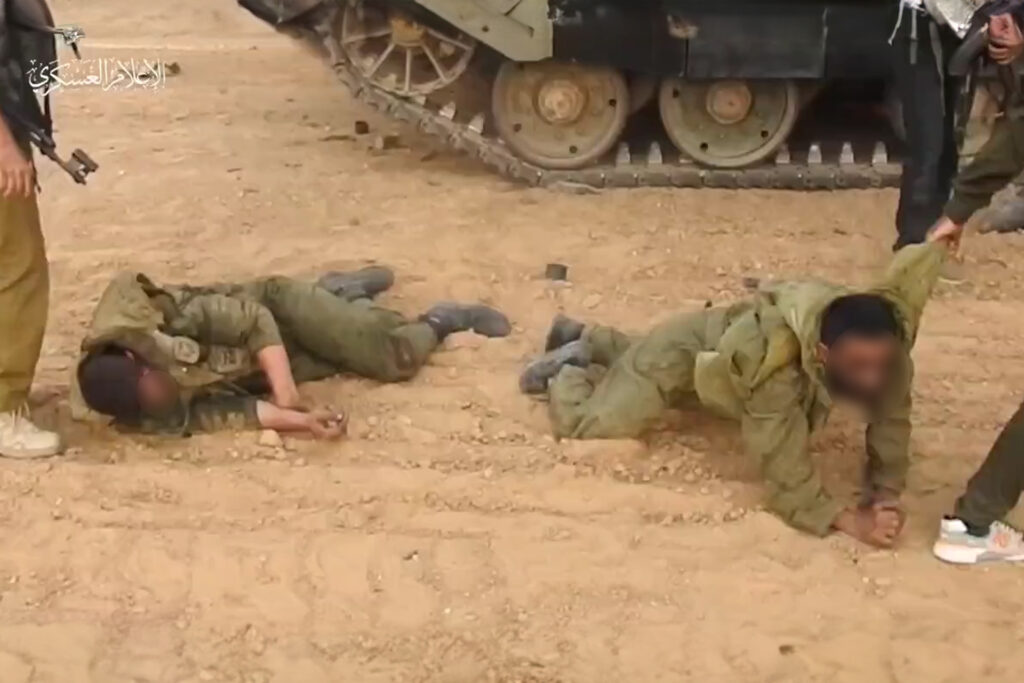The Israeli newspaper “Haaretz” tried to explain the suicide of 10 officers and soldiers in the occupation army since the Al-Aqsa flood attack, and said in an investigation it conducted in which it revealed the matter that conversations with relatives and professionals indicate that what the suicides saw in the combat sites “destroyed their souls.”
In a long report, the newspaper painted a picture of what the site of the attack looked like on October 7, 2023, saying that the sun rose on that day on the kibbutzim near Gaza, and everything was visible to the naked eye: burned homes, broken pictures, clothes, objects, and all signs of life. That ended.
Thousands of soldiers and officers who walked in the corridors, between the bushes and the squares, were still trying to locate the bodies and remains that had not been found, and to ascertain whether there were fighters affiliated with the Islamic Resistance Movement (Hamas) in the place.
One of the soldiers was hiding in the cowshed, and another came out of the migrant workers’ housing. Sometimes there were shouts and screams. A soldier entered a house on a kibbutz, and then a shot was heard. Another committed suicide in his car.
But then, at one o’clock in the afternoon, the sound of a gunshot, coming from a house, broke the maniacal silence of a kibbutz. The soldiers rushed to the house, fearing the presence of a Hamas fighter. Perhaps they would find a “victim,” or perhaps vice versa.
Killed by friendly fire
Instead, on Earth they found “Yotam” (not his real name), who had committed suicide; They declared his death on the spot as having been killed by friendly fire. His colleagues did not know the real reason for several days. The cause of death remained a mystery, as if it had been blocked by a censor. Only weeks later, Haaretz learned that the initial military investigation confirmed that he had committed suicide.
Yotam was not the only person in uniform to kill himself in the early days of the war, before Israel’s ground invasion of Gaza. The list, which the army refuses to disclose, includes several soldiers, including two officers, with the rank of major and lieutenant colonel. Some killed themselves in the first hours of the fighting, when battles were still raging around Gaza.
The newspaper quoted Professor Yossi Levy Belz, head of the Center for Studies of Suicide and Mental Pain at the Rubin Academic Center, as saying that these suicide incidents were very surprising to them, “We are not accustomed to suicide during fighting. These incidents usually happen when the fighting subsides, especially among people who are suffering.” “From post-traumatic stress disorder, who wake up every morning with sights, sounds and guilt, even after the war is over.”
for the first time
The head of the Israeli Army Affairs Directorate announced that the army will, for the first time, recognize soldiers who died due to “personal circumstances” as casualties in the war, adding: “These rare cases may indicate the severity of what happened in the Gaza envelope during those hours, and its impact on the mental state of those.” who were exposed to it.
The report explained that professionals in the field of dealing with suicide cases say: “As a general rule, most soldiers who commit suicide are very young, in basic training or in the first year of service.”
Regarding the direct motives for suicide, the newspaper reported conversations from relatives of the suicide bombers and their colleagues that reveal that some of the soldiers who killed themselves had psychologically difficulty confronting what they saw.
The smell of corpses
One of the soldiers said about his colleague who committed suicide that he kept telling him that he could not forget the smell of bodies scattered everywhere, and that he could not sleep.
One officer remembers that a soldier who committed suicide could not sleep at night and was disturbed by any noise, even if it was low.
Professor Levi Belz explains that the call to duty was so widespread that it is very likely that some reservists suffering from suicidal thoughts before the Al-Aqsa flood witnessed images that for them served as triggers for suicide. “For them, this was actually the straw that broke the camel’s back.” , according to his expression.


